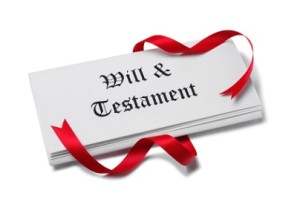Should you get a Will or a Trust?
We are often asked about what type of estate planning documents a person needs. Of course, there isn’t any one single answer. Each family has its own special needs and those needs really determine which documents are better for the family.
The biggest question that we are asked is whether someone should get a will or a trust. Here are some helpful questions to ask yourself to determine whether you need to get a will or trust.
What is a Last Will and Testament?
We asked Leawood Estate Planning Attorneys, the Eastman Law Firm, for help on what constitutes a last will and testament. They said that a last will and testament is defined by state statute and each state can have different requirements. However, the basics of a will are similar across most of the United States. A Last Will and Testament is a legal document that allows you to pass your property to your heirs. A will can also make provisions within it to have someone watch your minor children. Also, you can put who you want to take care of you in case of disability or other malady. Finally, your will can contain many trust provisions within it. That is, you can pass your property pursuant to the terms of a trust, called a testamentary trust, which would allow each heir to get their property at pre-set time frames, such as at age 25, 35 or 4o, instead of all at once upon death.
The downside to a will is that it is not effective unless it is probated with the local court. This probate process can be costly and time-consuming. In addition, the probate process is fully open to the public, which means that your entire estate can be seen by anybody that is willing to look up the records.
What is a Revocable Trust?
A revocable trust is a legal document that can do all of the same things as a last will and testament. The revocable trust becomes the legal owner of the property. Then, the trustee handles the property pursuant to the terms of the trust. What makes the document revocable is the ability to change it at will by the grantor (also known as the trustor). Thus, you can change who you want to get the trust assets at any time, or who you want to take care of yourself, at any time.
A revocable trust is also a great document to provide for tax planning. It is really great to find a way to use to create a plan that best utilizes all of the tax planning procedures that exist.
The biggest benefit, though, is that a revocable living trust is not able to be seen by others after death.
Conclusion
A last will and testament is the basic building block of any estate plan. A revocable living trust, however, does contain a couple of benefits that a will does not have, such as being invisible to outsiders upon death.
Corporate Law – LLC versus S-Corp
Which Entity Should You Choose?
One of the things that we discuss most often with clients is which type of entity they should choose for their new business. What’s more, they often come in with a bunch of preconceived ideas. Or worse, they have received a lot of advice from friends, family or well-meaning professionals. We also get a lot of clients that got advice from their father’s CPA, who whole-heartedly recommends a S-Corp, because he has done them for “years.”
Ok, there are actually several things that you need to consider when choosing the right corporate entity.
First, you need to consider what type of business you are in. For example, you cannot utilize anything other than a Limited Liability Company if you are doing real estate. The reason for this is that if you use a S-Corp when it comes to real estate, you will lose the step-up in basis upon your death.
Let’s look at an example. Let’s assume that you buy a commercial real estate building for $1 million, with $900,000 of that financed. Each year, you are able to depreciate the property. After 30 years, you have completely depreciated the property. If you were to sell the property right before your death, you would pay taxes on the full value (because your basis would be zero).
If your property were in a LLC, then your heirs would get the step up in basis at your death. What that means is that the property would immediately get a tax basis equal to its fair market value. So, if they were to sell the property right after death, then it would not be taxed at all (despite the fact that you depreciated it to nothing).
Unfortunately, this result would not be the same if the property were in a S-Corporation. In an S-Corp., the step up in basis would only apply to the stock of the corporation. Given that it is just stock, it would not receive any step up in basis. So, the corporation would still have the same basis in the property. So, when it would be sold, the corporation would have to take gains on all the property, which it would then pass on directly to its owners. Thus, the owners would have to pay taxes on the entirety of the property.

